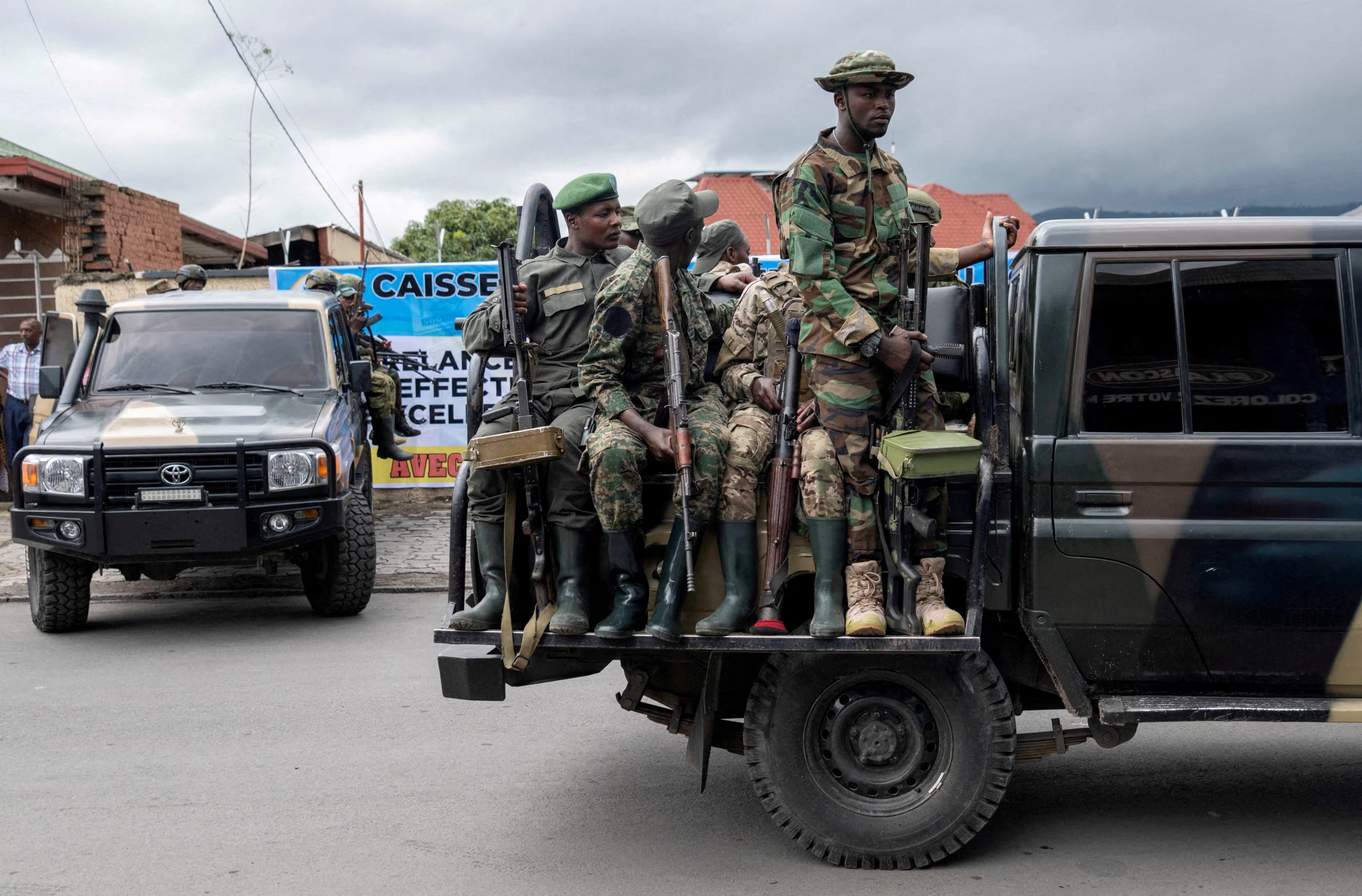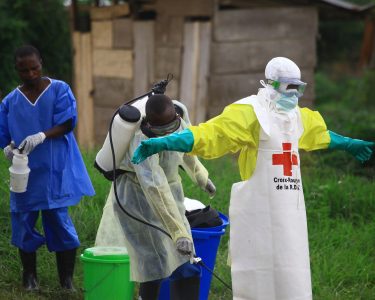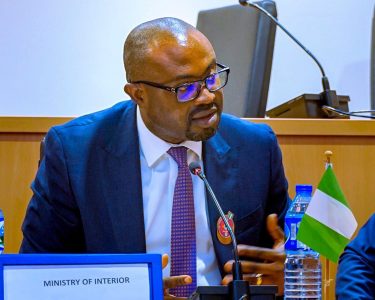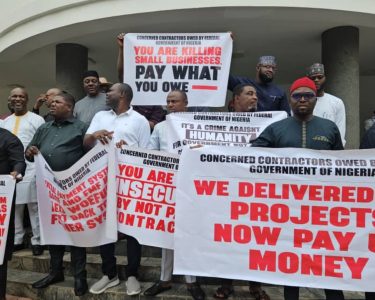Summary
-UN experts say Rwanda increased number of its own troops in Congo during rebel advance
-Rwanda armed rebels in violation of embargo, report says
-Rwanda has said its forces operate in self defense
-Trump administration aims to broker Rwanda, Congo peace deal
 M23 rebels sit on a truck during the escort of captured FDLR members (not pictured) to Rwanda for repatriation, at the Goma-Gisenyi Grande Barrier border crossing, March 1, 2025.
M23 rebels sit on a truck during the escort of captured FDLR members (not pictured) to Rwanda for repatriation, at the Goma-Gisenyi Grande Barrier border crossing, March 1, 2025.
Rwanda has exercised command and control over M23 rebels during their advance in eastern Congo, gaining political influence and access to mineral-rich territory, according to a confidential report by a group of United Nations experts.
The report, obtained by Reuters, details training that the experts say Rwanda provided to M23 recruits, as well as military equipment allegedly deployed by Rwanda—most notably “high-tech systems capable of neutralizing air assets”—to give the rebels “a decisive tactical advantage” over Congo’s beleaguered army. The report was submitted to the U.N. Security Council sanctions committee on Congo in early May and is expected to be published soon, diplomats said.
M23 has advanced through eastern Congo, seizing the region’s two largest cities, Goma and Bukavu, in January and February. Congo, the United Nations, and Western powers accuse Rwanda of supporting M23 by providing troops and weapons.
 Displaced people in Goma, eastern Democratic Republic of Congo, on Feb. 16.
Displaced people in Goma, eastern Democratic Republic of Congo, on Feb. 16.
Rwanda has repeatedly denied backing M23, claiming instead that its forces are acting in self-defense against Congo’s army and ethnic Hutu militias linked to the 1994 Rwandan genocide, including the Democratic Forces for the Liberation of Rwanda (FDLR). However, the U.N. experts said Rwanda’s military support for M23 was not “primarily” focused on countering FDLR threats. Rather, they asserted, Kigali’s objective was “conquering additional territories.”
Yolande Makolo, a spokesperson for the Rwandan government, told reporters on Wednesday that the report “misrepresents Rwanda’s longstanding security concerns related to the persistent threat of the FDLR and its affiliated groups, which necessitates the defense posture in our border areas.”
The administration of U.S. President Donald Trump is attempting to broker a peace deal between Rwanda and Congo that could bring billions of dollars in Western investment to a region rich in tantalum, gold, cobalt, copper, lithium, and other minerals.
 DRC President Félix Tshisekedi speaks during a joint news conference at the end of a summit.
DRC President Félix Tshisekedi speaks during a joint news conference at the end of a summit.
On Friday, the foreign ministers of Rwanda and Congo signed a peace agreement in Washington and met with Trump, who warned of “very severe penalties, financial and otherwise” if the deal is violated. Meanwhile, Qatar is hosting a parallel mediation effort with delegations from the Congolese government and M23 representatives.
Makolo said Rwanda is committed to implementing the Washington agreement, including efforts to neutralize the FDLR, “which will enable the lifting of Rwanda’s defensive measures.”
The U.N. report states that Rwanda hosted leaders of a rebel coalition including M23 at its Gabiro Training Centre and used military facilities in Nasho and Gako to train M23 recruits.
According to the experts, Rwanda also “drastically increased” the number of its troops in eastern Congo in the lead-up to M23’s advance. They provided what they called a “conservative estimate” of 6,000 Rwandan troops active in Congo’s North and South Kivu provinces.
 Smoke billows from an armored personnel carrier of the United Nations Organization Stabilization Mission in the Democratic Republic of the Congo left on the side of the road in Nzulo, Democratic Republic of Congo, on Jan. 25.
Smoke billows from an armored personnel carrier of the United Nations Organization Stabilization Mission in the Democratic Republic of the Congo left on the side of the road in Nzulo, Democratic Republic of Congo, on Jan. 25.
The experts also accused Rwanda of “flagrant and systematic violations” of the U.N. arms embargo and said that a likely missile attack in January on an armored personnel carrier transporting U.N. peacekeepers—killing one and injuring four—appeared to have been launched from a Rwandan military position.
An estimated 1,000 to 1,500 Rwandan troops were still active in M23-held territory when the report was drafted, and “several thousand” remained along the border ready to deploy, said the report, which covers investigations conducted up to April 20.
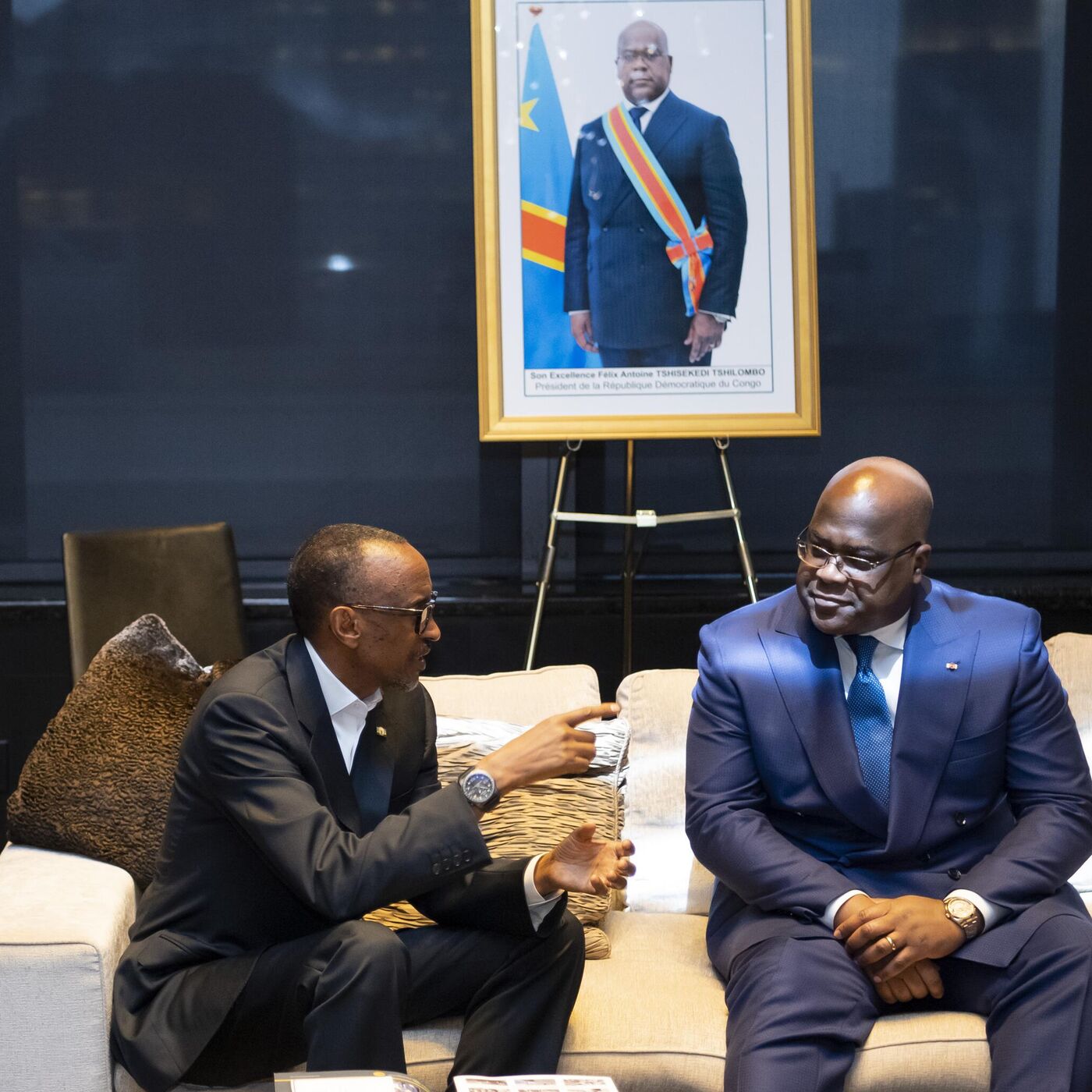 The dispute between Rwanda and the DRC concerns the operations of the M23 rebels in eastern DR Congo. Kinshasa has repeatedly accused Rwanda of supporting the rebels, while Kigali denies any links to the movement.
The dispute between Rwanda and the DRC concerns the operations of the M23 rebels in eastern DR Congo. Kinshasa has repeatedly accused Rwanda of supporting the rebels, while Kigali denies any links to the movement.
Push for Peace
M23’s military gains earlier this year raised fears of a broader regional war drawing in Congo’s neighbors and stirred concern over the stability of President Felix Tshisekedi’s government.
In March, M23 fighters reached as far west as Walikale, a mineral-rich area known for tin deposits, placing the rebels within 400 kilometers of Kisangani, Congo’s fourth-largest city.
However, the group withdrew from Walikale in April—a move that, according to the U.N. experts, was “taken following direct instruction from the Government of Rwanda, once again confirming Rwanda’s command and control” over rebel operations.
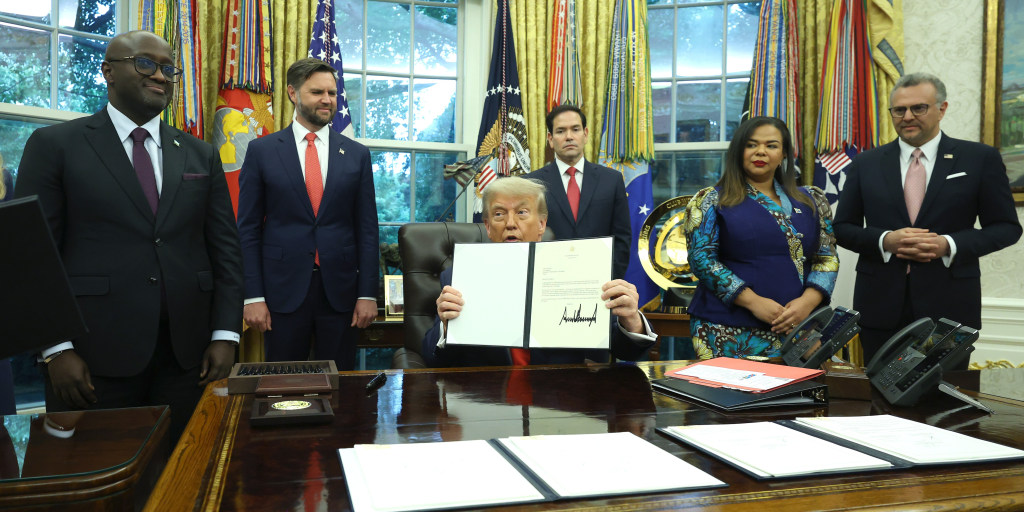 President Donald Trump signs a letter of congratulations as he meets with Minister of Foreign Affairs and Cooperation of Rwanda, Olivier Nduhungirehe, and the Foreign Minister of the Democratic Republic of Congo, Thérèse Kayikwamba Wagner, in the Oval Office at the White House on Friday.
President Donald Trump signs a letter of congratulations as he meets with Minister of Foreign Affairs and Cooperation of Rwanda, Olivier Nduhungirehe, and the Foreign Minister of the Democratic Republic of Congo, Thérèse Kayikwamba Wagner, in the Oval Office at the White House on Friday.
“This included strategic-level decision-making on whether to seize, hold, or relinquish territory, thereby demonstrating overall operational coordination and hierarchical subordination,” the report said.
The report also accused the Congolese government of violating sanctions by supporting the FDLR and pro-government militia fighters known as Wazalendo, offering them money and logistical support.
A spokesperson for the Congolese government did not immediately respond to a request for comment.


